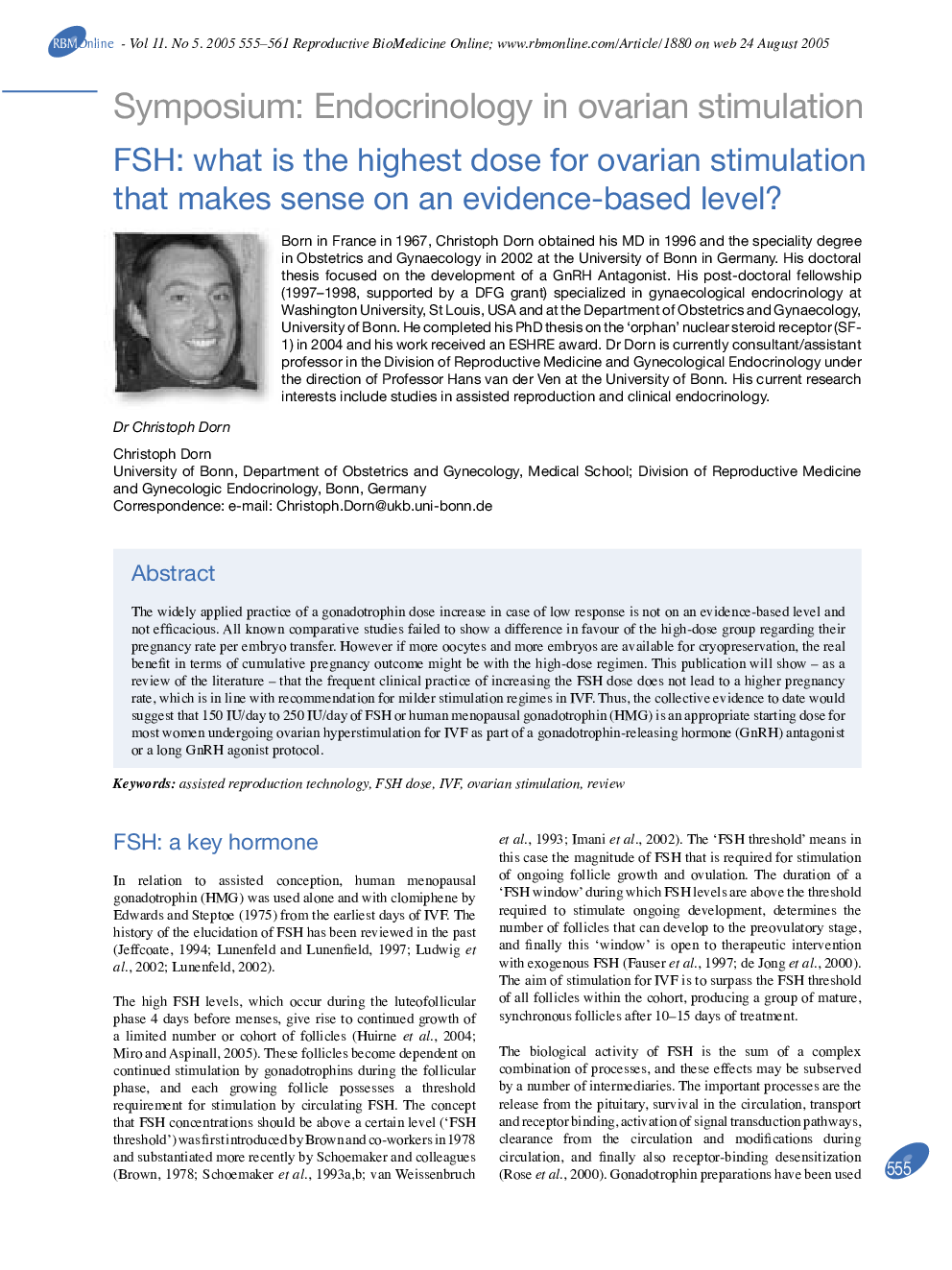| Article ID | Journal | Published Year | Pages | File Type |
|---|---|---|---|---|
| 9334875 | Reproductive BioMedicine Online | 2005 | 7 Pages |
Abstract
The widely applied practice of a gonadotrophin dose increase in case of low response is not on an evidence-based level and not efficacious. All known comparative studies failed to show a difference in favour of the high-dose group regarding their pregnancy rate per embryo transfer. However if more oocytes and more embryos are available for cryopreservation, the real benefit in terms of cumulative pregnancy outcome might be with the high-dose regimen. This publication will show - as a review of the literature - that the frequent clinical practice of increasing the FSH dose does not lead to a higher pregnancy rate, which is in line with recommendation for milder stimulation regimes in IVF. Thus, the collective evidence to date would suggest that 150 IU/day to 250 IU/day of FSH or human menopausal gonadotrophin (HMG) is an appropriate starting dose for most women undergoing ovarian hyperstimulation for IVF as part of a gonadotrophin-releasing hormone (GnRH) antagonist or a long GnRH agonist protocol.
Related Topics
Health Sciences
Medicine and Dentistry
Obstetrics, Gynecology and Women's Health
Authors
Christoph Dorn,
